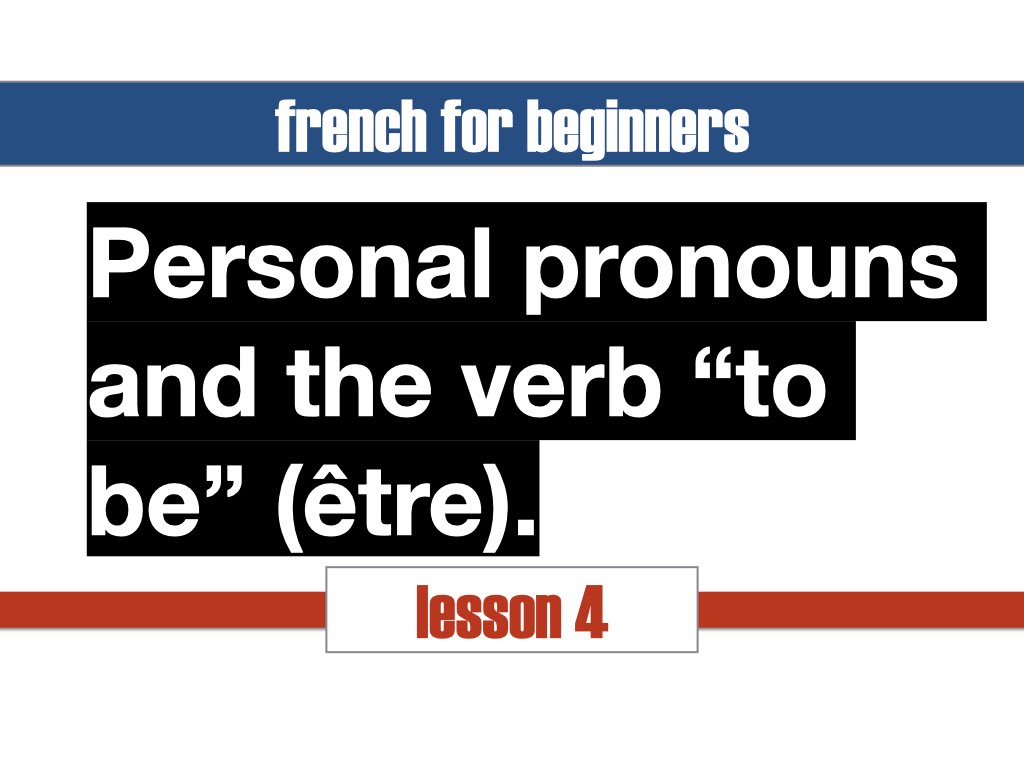French for Beginners: Lesson 4 – Personal Pronouns and the Verb “être” (To Be)
The verb is absolutely essential in French. First, we will see in this lesson the conjugation of this irregular verb (you have to memorize it) as well as the subject pronouns.
✚ Objectives:
- Study the subject pronouns in French.
- Learn to recognize the verb être and learn to pronounce it.
- Formulate simple sentences with the verb être.
1. French Personal Pronouns
Subject pronouns replace proper nouns or common nouns. Note that the pronouns “he” and “she” can replace a name of a thing or a person.
Also note that “he” and “she” each have a plural, unlike in English.
| French Subject Pronouns | English Translation |
|---|---|
| je | I |
| tu | You (singular, informal) |
| il / elle | He/She |
| nous | We |
| vous | You (plural, formal) |
| ils / elles | They (masculine/feminine) |
2. Conjugation of “être”
The verb “être” means “to be” and is used frequently. Here’s how it’s conjugated:
| French Subject Pronouns | Conjugation of “Être” | English Translation | IPA Pronunciation |
|---|---|---|---|
| je | suis | I am | ʒə sɥi |
| tu | es | You are | ty ɛ |
| il/elle | est | he / she is | il/ɛl/ɔ̃ ɛ |
| nous | sommes | We are | nu sɔm |
| vous | êtes | You are | vu zɛt |
| ils/elles | sont | They are | il/zɛl sɔ̃ |
Utilisation :
être is often followed by an attribute of the subject (an adjective that agrees in gender and number with the subject).
For example:
Il est étudiant. He is a student.
Ils sont médecins. They are doctors.
In the case of “I”, “you”, “we”, “you”, it is important to ask about the subject to agree the adjective.
➜ Example 1 : “Je” = female subject
Je suis anglaise. Je suis allemande. Je suis roumaine. Je suis russe.
I am English. I am German. I am Romanian. I am Russian.
➜ Example 2 : Je = male subject
Je suis anglais. Je suis allemand. Je suis roumain. Je suis russe.
I am English. I am German. I am Romanian. I am Russian.
🍀 PRACTICE 🍀
Complete with the verb to be. Pay attention to the conjugation.


